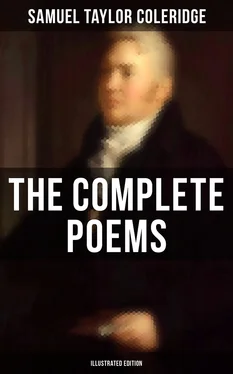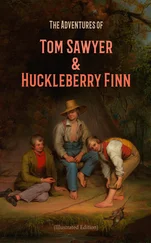["Dear Sir Walter Scott and myself were exact, but harmonious opposites in this—that every old ruin, hill, river or tree called up in his mind a host of historical or biographical associations; whereas, for myself, I believe I should walk over the plain of Marathon without taking more interest in it than in any other plain of similar features."— Table Talk , August 4, 1833, Bell & Co., 1834, p. 242.]
THE INTOLERANCE OF CONVERTS
Why do we so very, very often see men pass from one extreme to the other? στοδκαρδια [Stoddart, for instance]. Alas! they sought not the truth, but praise, self-importance, and above all [the sense of] something doing! Disappointed, they hate and persecute their former opinion, which no man will do who by meditation had adopted it, and in the course of unfeigned meditation gradually enlarged the circle and so get out of it. For in the perception of its falsehood he will form a perception of certain truths which had made the falsehood plausible, and can never cease to venerate his own sincerity of intention and Philalethie. For, perhaps, we never hate any opinion, or can do so, till we have impersonated it. We hate the persons because they oppose us, symbolise that opposition under the form and words of the opinion and then hate the person for the opinion and the opinion for the person.
[For some weeks after his arrival at Valetta Coleridge remained as the guest of Dr. John (afterwards Sir John) Stoddart, at that time H.M. Advocate at Malta.]
FACTS AND FICTION
Facts! Never be weary of discussing and exposing the hollowness of these. [For, in the first place,] every man [is] an accomplice on one side or the other, [and, secondly, there is] human testimony . "You were in fault, I hear," said B to C, and B had heard it from A. [Now] A had said, "And C, God bless her, was perhaps the innocent occasion"! But what a trifle this to the generality of blunders!
CANDOUR ANOTHER NAME FOR CANT
[I have no pity or patience for that], blindness which comes from putting out your own eyes and in mock humility refusing to form an opinion on the right and the wrong of a question. "If we say so of the Sicilians, why may not Buonaparte say this of the Swiss?" and so forth. As if England and France, Swiss and Sicilian were the x y z of Algebra, naked names of unknown quantities. [What is this but] to fix morals without morality, and [to allow] general rules to supersede all particular thought? And though it be never acted on in reality, yet the opinion is pernicious. It kills public spirit and deadens national effort.
A SIMILE
The little point, or, sometimes, minim globe of flame remains on the [newly] lighted taper for three minutes or more unaltered. But, see, it is given over, and then, at once, the flame darts or plunges down into the wick, then up again, and all is bright—a fair cone of flame, with its black column in it, and minor cone, shadow-coloured, resting upon the blue flame the common base of the two cones, that is, of the whole flame. A pretty detailed simile in the manner of J. Taylor might be made of this, applying it to slow learners, to opportunities of grace manifestly neglected and seemingly lost and useless.
O STAR BENIGN
Monday evening, July 9, 1804, about 8 o'clock. The glorious evening star coasted the moon, and at length absolutely crested its upper tip.... It was the most singular and at the same time beautiful sight I ever beheld. Oh, that it could have appeared the same in England, at Grasmere!
NEFAS EST AB HOSTE DOCERI
In the Jacobinism of anti-jacobins, note the dreariest feature of Jacobins, a contempt for the institutions of our ancestors and of past wisdom, which has generated Cobbetts and contempt of the liberty of the press and of liberty itself. Men are not wholly unmodified by the opinion of their fellow-men, even when they happen to be enemies or (still worse) of the opposite faction.
THE MANY AND THE ONE
I saw in early youth, as in a dream, the birth of the planets; and my eyes beheld as one what the understanding afterwards divided into (1) the origin of the masses, (2) the origin of their motions, and (3) the site or position of their circles and ellipses. All the deviations, too, were seen as one intuition of one the self-same necessity, and this necessity was a law of spirit, and all was spirit. And in matter all beheld the past activity of others or their own—and this reflection, this echo is matter—its only essence, if essence it be. And of this, too, I saw the necessity and understood it, but I understood not how infinite multitude and manifoldness could be one; only I saw and understood that it was yet more out of my power to comprehend how it could be otherwise—and in this unity I worshipped in the depth of knowledge that passes all understanding the Being of all things—and in Being their sole goodness—and I saw that God is the One, the Good—possesses it not, but is it .
THE WINDMILL AND ITS SHADOW
The visibility of motion at a great distance is increased by all that increases the the distinct visibility of the moving object. This Saturday, August 3, 1804, in the room immediately under the tower in St. Antonio, as I was musing on the difference, whether ultimate or only of degree, between auffassen and erkennen (an idea received and an idea acquired) I saw on the top of the distant hills a shadow on the sunny ground moving very fast and wave-like, yet always in the same place, which I should have attributed to the windmill close by, but the windmill (which I saw distinctly too) appeared at rest. On steady gazing, however, (and most plainly with my spy-glass) I found that it was not at rest, but that this was its shadow. The windmill itself was white in the sunshine, and there were sunny white clouds at its back, the shadow black on the white ground.
SYRACUSE Thursday night at the Opera, September 27, 1804
In reflecting on the cause of the "meeting soul" in music, the seeming recognisance etc., etc., the whole explanation of memory as in the nature of accord struck upon me; accord produces a phantom of memory, because memory is always in accord.
Oct. 5, 1804
Philosophy to a few, religion with many, is the friend of poetry, as producing the two conditions of pleasure arising from poetry, namely tranquillity and the attachment of the affections to generalisations . God, soul, Heaven, the Gospel miracles, etc., are a sort of poetry compared with Lombard Street and Change Alley speculations.
A SERIOUS MEMORANDUM Syracuse, Saturday, Oct. 5, 1804
In company, indeed, with all except a very chosen few, never dissent from anyone as to the merits of another, especially in your own supposed department, but content yourself with praising, in your turn; the really good praises of the unworthy are felt by a good man, and man of genius as detractions from the worthy, and robberies—so the flashy moderns seem to rob the ancients of the honours due to them, and Bacon and Harrington are not read because Hume and Condillac are . This is an evil; but oppose it, if at all, in books in which you can evolve the whole of your reasons and feeling, not in conversation when it will be inevitably attributed to envy. Besides, they who praise the unworthy must be the injudicious: and the eulogies of critics without taste or judgment are the natural pay of authors without feeling or genius—and why rob them? Sint unicuique sua præmia. Coleridge! Coleridge! will you never learn to appropriate your conversation to your company! Is it not desecration, indelicacy, and a proof of great weakness and even vanity to talk to, etc. etc., as if you [were talking to] Wordsworth or Sir G. Beaumont?
"CAST NOT YOUR PEARLS BEFORE SWINE"
Читать дальше












